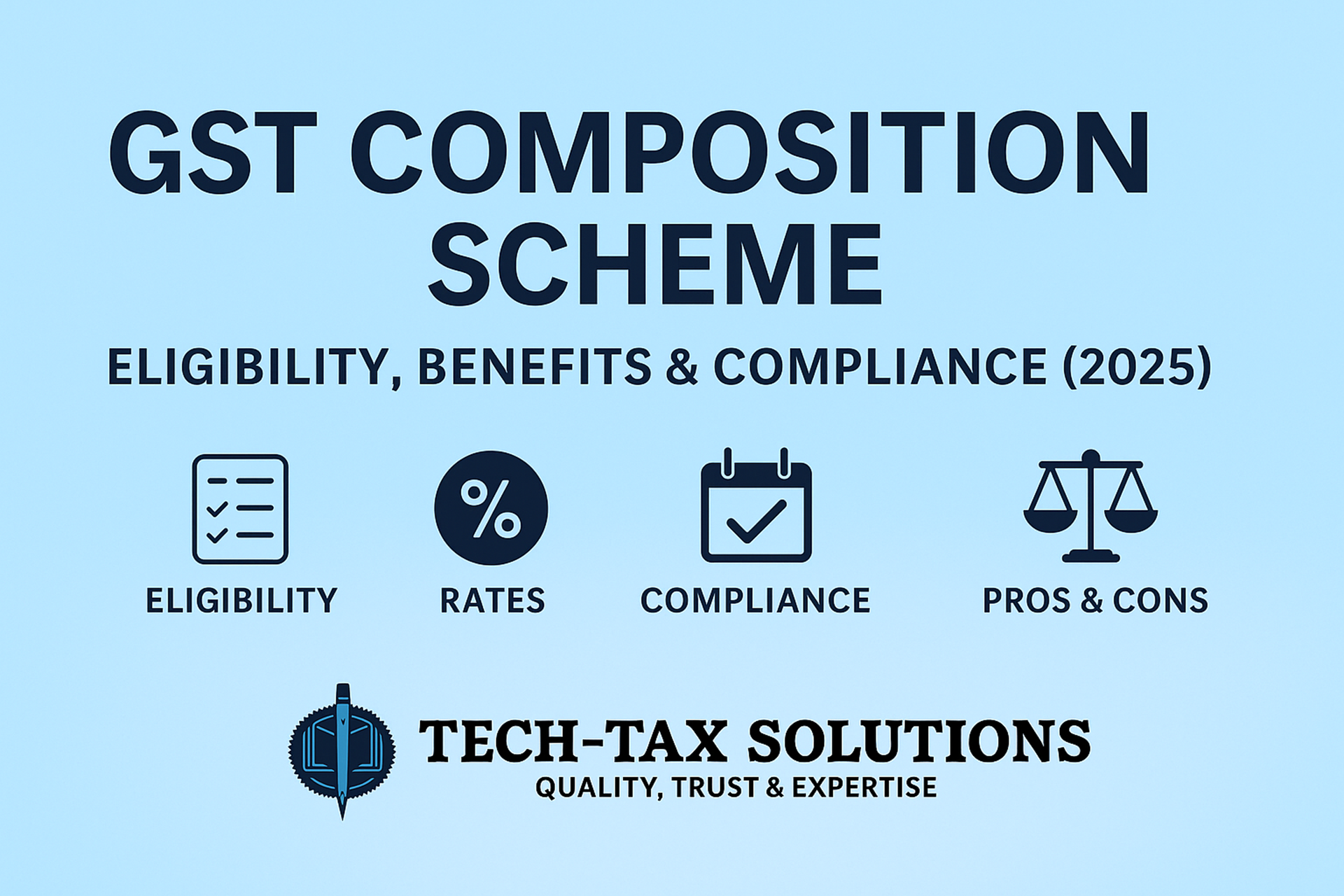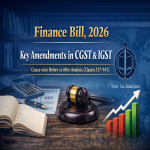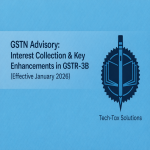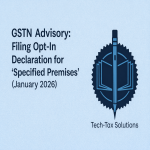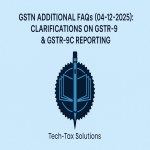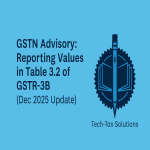🔹 Introduction
The GST Composition Scheme is designed to reduce compliance burden for small taxpayers. It allows eligible businesses to pay tax at a lower rate on turnover and file simplified returns. However, it comes with restrictions on ITC, supply types, and eligibility.
This article provides a detailed compliance guide to the GST Composition Scheme in 2025.
(References: Sec. 10 of CGST Act, Rules 5–7, CBIC Notifications till 2025)
🔹 Eligibility for Composition Scheme
✅ Turnover Limit
-
Normal States: Up to ₹1.5 crore aggregate turnover in the preceding financial year.
-
Special Category States: Up to ₹75 lakh.
✅ Who Can Opt
-
Manufacturers (except notified goods).
-
Traders/dealers (suppliers of goods).
-
Restaurants (not serving alcohol).
❌ Who Cannot Opt
-
Businesses supplying inter-state outward supplies.
-
Businesses supplying through e-commerce operators required to collect TCS.
-
Manufacturers of notified goods (e.g., ice cream, pan masala, tobacco).
-
Service providers (except restaurants).
-
Casual taxable persons & non-resident taxable persons.
⚠️ Update FY 2025: Service providers may opt for a similar scheme under Sec. 10(2A) (composition scheme for services) subject to turnover limit of ₹50 lakh, with 6% tax rate.
🔹 Tax Rates under Composition Scheme
-
Manufacturers: 1% of turnover (0.5% CGST + 0.5% SGST).
-
Traders/Dealers: 1% of turnover.
-
Restaurants: 5% of turnover (2.5% CGST + 2.5% SGST).
-
Service Providers (Sec. 10(2A)): 6% of turnover (3% CGST + 3% SGST).
🔹 Compliance Requirements
📌 1. Opting into Composition Scheme
-
File CMP-02 on GST portal before commencement of financial year.
-
Furnish details of stock in CMP-03 within 60 days.
📌 2. Returns to be Filed
-
GSTR-4 (Annual Return): To be filed by 30th April of following FY.
-
CMP-08 (Quarterly Statement): To declare turnover & pay tax by 18th of month following quarter.
📌 3. Payment of Tax
-
Tax payable on turnover in state/UT.
-
Paid quarterly via CMP-08 using PMT-06 challan.
📌 4. Invoice & Records
-
Cannot issue tax invoice; must issue Bill of Supply.
-
Cannot collect tax from customers separately.
-
Must display “Composition taxable person, not eligible to collect tax on supplies” at place of business.
📌 5. Exiting the Scheme
-
File CMP-04 within 7 days if ineligible or opting out.
-
File ITC-01 to claim ITC on stock when shifting to regular scheme.
🔹 Advantages of Composition Scheme
-
✅ Lower tax rates → Cost savings for small businesses.
-
✅ Lesser compliance → Only quarterly CMP-08 & annual GSTR-4.
-
✅ Simpler invoicing → Bill of Supply instead of tax invoice.
-
✅ Stability for small traders/manufacturers.
🔹 Disadvantages & Restrictions
-
❌ No ITC allowed.
-
❌ Cannot make inter-state supplies.
-
❌ Not eligible for e-commerce sellers.
-
❌ Not suitable for businesses dealing with large corporate buyers (who demand ITC).
🔹 Penalties for Wrongful Opt-In
-
If ineligible person opts for scheme → treated as regular taxpayer from the date of ineligibility.
-
Liable to pay differential tax with interest & penalty under Sec. 74A.
🔹 Practical Examples
-
Small Trader in Ghaziabad: Annual turnover ₹80 lakh, intra-state sales only → Eligible for composition (1% tax).
-
Restaurant in Noida: Turnover ₹1.2 crore → Eligible (5% tax).
-
Manufacturer supplying inter-state: Ineligible for scheme.
🔹 FAQs
Q1. Can composition dealers collect GST from customers?
➡️ No, they can’t. They must pay tax out of pocket.
Q2. Can a composition dealer issue tax invoice?
➡️ No, only Bill of Supply.
Q3. Can ITC be claimed on purchases?
➡️ No, ITC not available under composition.
Q4. Can composition dealers sell outside the state?
➡️ No, only intra-state supplies allowed.
Q5. How is tax paid by service providers under Sec. 10(2A)?
➡️ 6% of turnover up to ₹50 lakh.
🔹 Best Practices
-
✅ Review eligibility before opting.
-
✅ Maintain turnover records.
-
✅ Display mandatory signboard.
-
✅ File CMP-08 & GSTR-4 on time.
-
✅ Exit scheme immediately if conditions not met.
🔹 Conclusion
The GST Composition Scheme is a useful option for small businesses, but it comes with restrictions. Before opting, evaluate your turnover, customer profile, and supply type. Wrongful opting can lead to heavy penalties.
📌 Need help choosing between Regular & Composition scheme?
Contact Tech-Tax Solutions – Quality, Trust & Expertise in Ghaziabad, Noida & Delhi.
